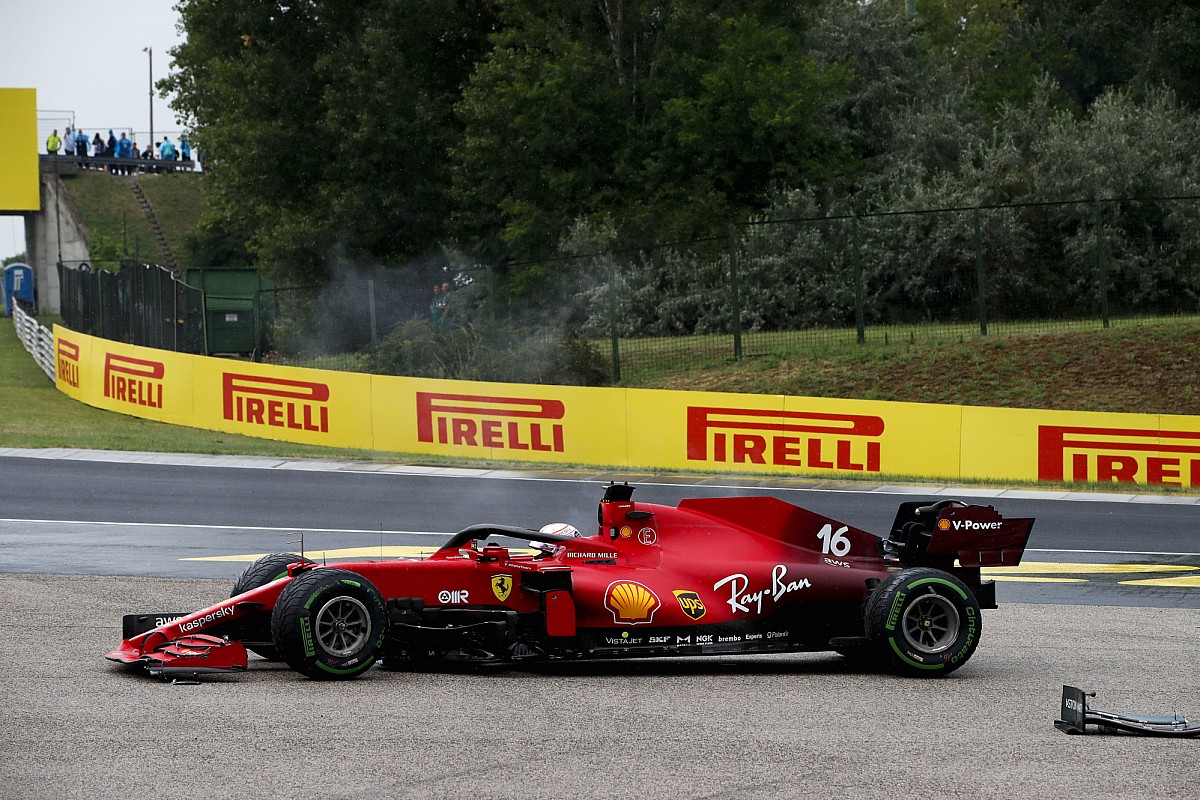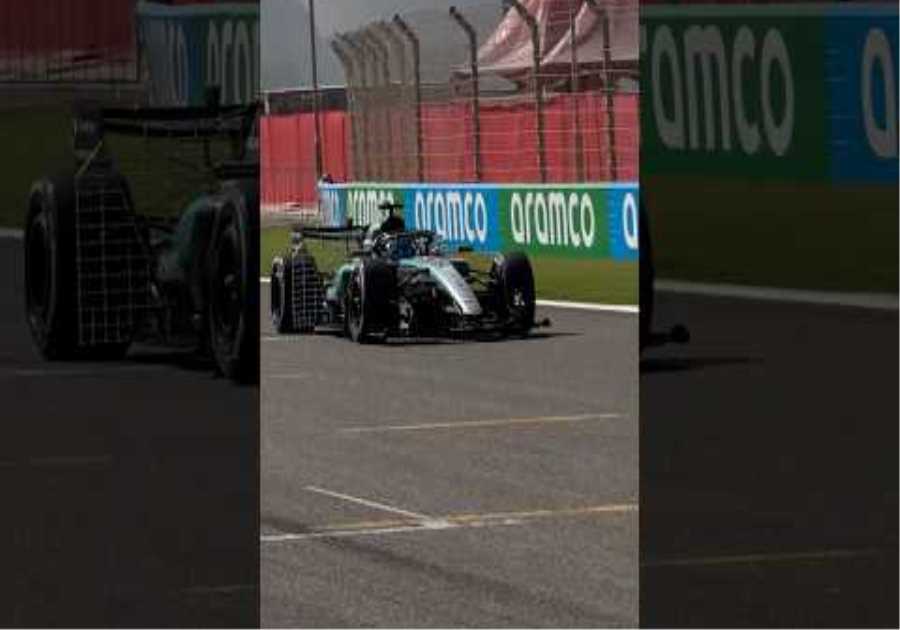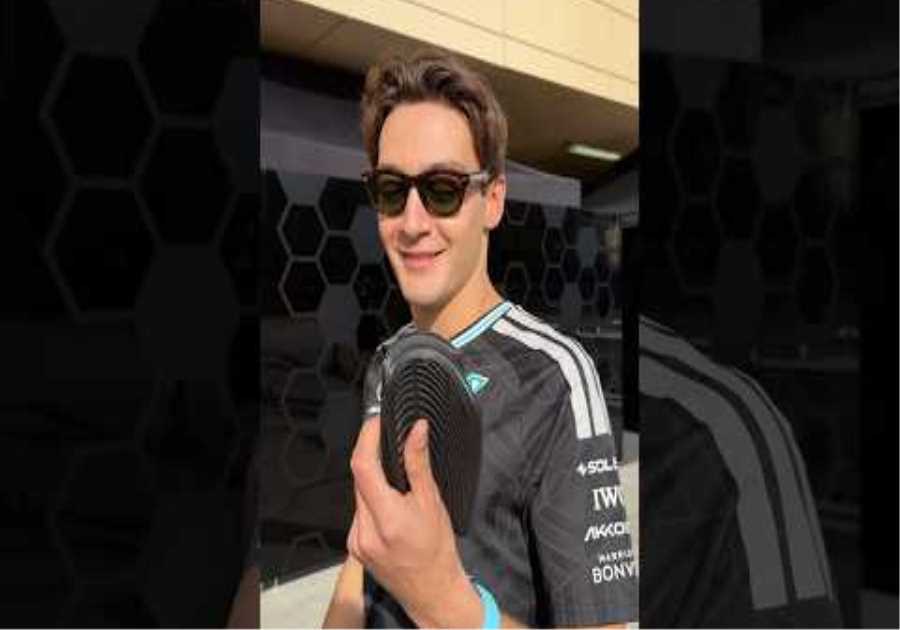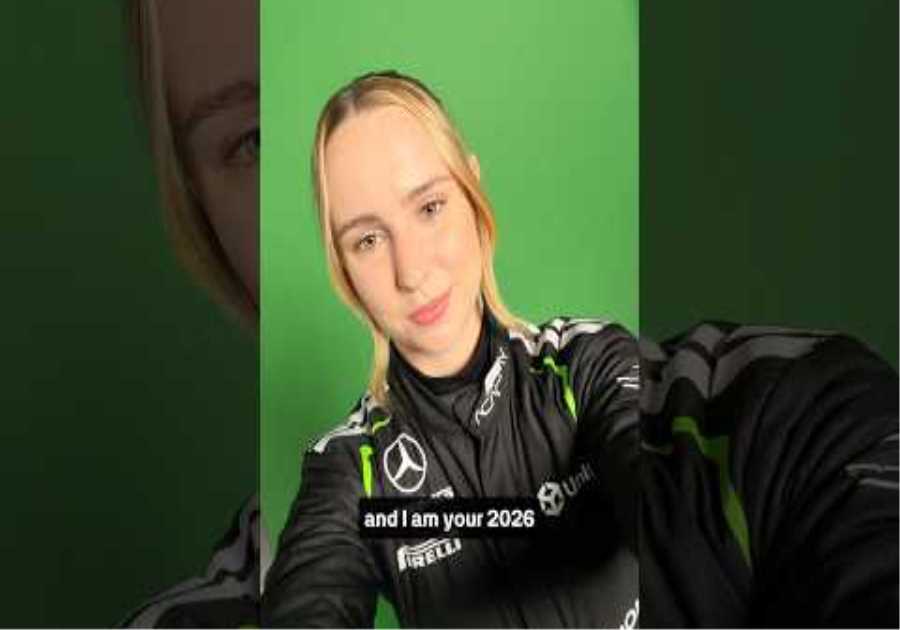
The Monegasque driver was collected by his out-of-control Aston Martin rival at the apex of the first corner, when Stroll braked too late and took to the grass in the damp conditions.
The collision badly damaged Leclerc’s car and was enough to pitch him out of the grand prix at the second turn.
However, as a fresh blow, Ferrari has now discovered that the power unit Leclerc was using cannot be repaired.
It means Leclerc will have to take his third and final power unit of the year at the Belgian Grand Prix, and that will likely mean having to use a fourth engine later in the campaign. That will trigger a grid drop.
In a statement issued on Tuesday, Ferrari said: “Examination of the number 16 SF21 carried out yesterday in Maranello, revealed that on top of this, the engine was irreparably damaged and cannot be used again, following the impact from Lance Stroll’s Aston Martin.
“This is a further blow for Scuderia Ferrari and the Monegasque driver. This damage has a financial impact and also racing ramifications, given that over the remaining 12 race weekends this season, it is highly likely the team could be obliged to fit a fourth ICE to Charles’ SF21, thus incurring grid penalties.”
Leclerc’s engine blow comes with rival Red Bull also have seen it suffer two potential engine write-offs as the result of collisions involving other cars.
Charles Leclerc, Ferrari SF21 retires from the race
Photo by: Zak Mauger / Motorsport Images
Max Verstappen’s British GP power unit suffered a crack so needed replacing for the Hungarian GP race, while Sergio Perez’s power unit failed after he was collected by Valtteri Bottas at the first corner of the Hungaroring.
Speaking at the weekend, Ferrari team principal Mattia Binotto suggested F1 could consider a change of rules that forced rival teams to pay for accident damage if they are found wholly to blame.
While Red Bull thinks that teams should be granted exemptions for the cost cap if they suffer accident damage caused by other teams, Binotto thinks an alternative idea could work better.
“I think there is value for discussions in the near future with the other team principals, FIA and F1,” said Binotto.
“Obviously if you’re not guilty, having such damage in the budget cap is something which is even more of a consequence now.
“Should we add exemptions? I’m not sure that’s the solution. I think it may be very difficult to be policed.
“But I think that what we may consider is that if a driver is faulty, the team of the driver should pay at least to the other teams for the damages and repairs. That will make the drivers more responsible.”






